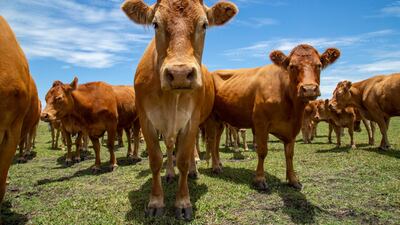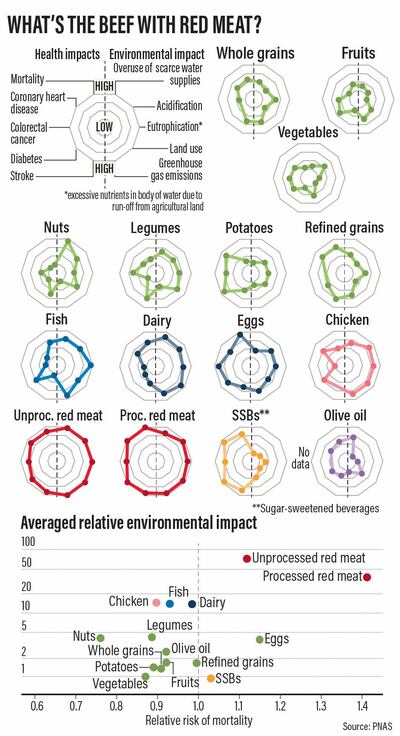Eating right is not only good for your health, it's good for Mother Earth too, a new study has found.
When eaten as part of a regular diet, vegetables, fruits, whole grain cereals, nuts and legumes can reduce risk of certain diseases.
But researchers at the University of Oxford and University of Minnesota have shown the food groups also have a “markedly lower” environmental impact too.
In contrast, however, a regular helping of red meat at the dinner table can increase an individual’s risk of early death and damage the environment.
The study, published in the National Academy of Sciences Journal this month, honed in on 15 popular food groups.
Researchers studied their impacts on human health, looking at how they affected overall risk of four main diseases including colon cancer, diabetes, heart disease and stroke.
They also calculated the impact of each of the food groups on the environment, taking into account five main factors including water, land use and greenhouse gas emissions involved in food production.
"Dietary choices are a leading global cause of mortality and environmental degradation and threaten the attainability of the UN’s Sustainable Development Goals,” researchers said.
Red meat proved to be the biggest offender on both scales, followed by chicken, eggs, fish and dairy products.
Livestock farming is responsible for a large amount of the world's greenhouse gases and those who eat a meat-heavy diet contribute to a huge majority of food-related carbon emissions.
“Foods associated with the largest negative environmental impacts - unprocessed and processed red meat - are consistently associated with the largest increases in disease risk,” the lead authors said.
“Thus, dietary transitions toward greater consumption of healthier foods would generally improve environmental sustainability.”
They suggested individuals turn to vegetarian or vegan alternatives for a portion of meals during the week, as it could dramatically cut food-related carbon emissions.
“[These] foods have multiple health and environmental benefits globally," the report said.
According to the Intergovernmental Panel on Climate Change (IPCC), global meat consumption has more than doubled in the past 60 years.
Here, using official statistics published in this latest study, we look at the impact of food on health and environment degradation.



